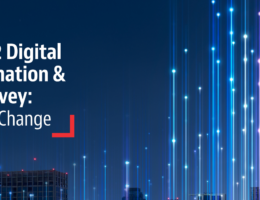Earlier this year, the Malaysian Personal Data Protection Department released several documents to aid data users in their compliance with the Malaysian Personal Data Protection Act 2010 – these include a guide on privacy notices, new codes of practice applicable to the private healthcare industry and the water utilities industry, as well as circulars reminding prescribed classes of data users of their registration obligations.
Subsequent to our client alert issued in November 2021 in relation to cloud service regulation in Malaysia, the Malaysian Communications and Multimedia Commission has since shed light on the scope of the licensing regime and the availability of a grace period until 31 March 2022 to those affected to fully comply with the new licensing requirement.
On 15 December 2021, the Anti-Sexual Harassment Bill 2021 was tabled for its first reading in the Dewan Rakyat. Its main aim is to establish a tribunal for the hearing of sexual harassment complaints and claims.
The latest iteration of our annual Digital Transformation and Cloud Survey features insights from 500 global respondents, who cite heightened attention on and investment in cybersecurity, AI and the cloud as indicators of digital transformation being an integral part of enterprise thinking and planning. In this report, we provide these results together with insights from our almost decade of surveying the marketplace and thought leadership in digital transformation and cloud.
The Communications and Multimedia Content Forum of Malaysia has issued a public consultation paper titled “Revamp of the Malaysian Communications and Multimedia Content Code”, proposing a number of changes to the prohibitions, restrictions and requirements on electronic content, particularly in relation to advertising, as well as broader implications for online service providers and online marketplace operators. The closing date for submission of feedback to the Content Forum is 10 December 2021.
Effective 1 January 2022, cloud service providers in Malaysia will be subjected to licensing requirements under the Malaysian Communications and Multimedia Act 1998. Technical standards are also expected to be implemented in due course to ensure that licensed cloud service providers comply with prescribed requirements as to data security and data protection. Cloud service providers are advised to carefully consider whether the new licensing regime applies to their solutions, and to ensure they are duly licensed when the requirements come into force in the new year.
On 19 February 2021, the majority of the Malaysian Federal Court (“Federal Court”) delivered its much-anticipated judgment in Peguam Negara Malaysia v Mkini Dotcom Sdn Bhd and Another [2020] 4 MLJ 791 in respect of the allegation of contempt of court by way of comments posted by subscribers and readers on the Malaysiakini news portal on 9 June 2020.
The Federal Court in its majority decision held that Malaysiakini, an online platform provider, is liable for third party comments which are offensive and inappropriate even though they had no knowledge of the same until notified and where the impugned comments were then promptly removed. Further, compliance with the Malaysian Communications and Multimedia Content Code (“Content Code”) did not shield Malaysiakini from liability.
While the matter related to an offence of criminal contempt, the Federal Court’s decision is likely to impact and change the landscape of liability for online platform providers in Malaysia with regard to third party content.
After almost a decade of negotiations, the Regional Comprehensive Economic Partnership (RCEP) Agreement was signed on 15 November 2020 by 10 ASEAN member states, along with Australia, China, Japan, New Zealand and South Korea.
The RCEP is the largest regional free trade agreement outside the WTO, and its member states account for approximately 30% of the world’s gross domestic product (USD 26.3 trillion) and 30% of the world’s population (2.3 billion). Its overarching aim is to establish a modern, comprehensive and mutually beneficial economic partnership that brings together countries with diverse levels of development, fuels regional value chains and promotes international trade and investment.
The agreement comprises 20 chapters with specific provisions covering, amongst other things, e-commerce, trade in goods, trade in services, investment, competition and intellectual property. In this Client Alert, we summarize the key highlights of the e-commerce chapter of the RCEP Agreement.





